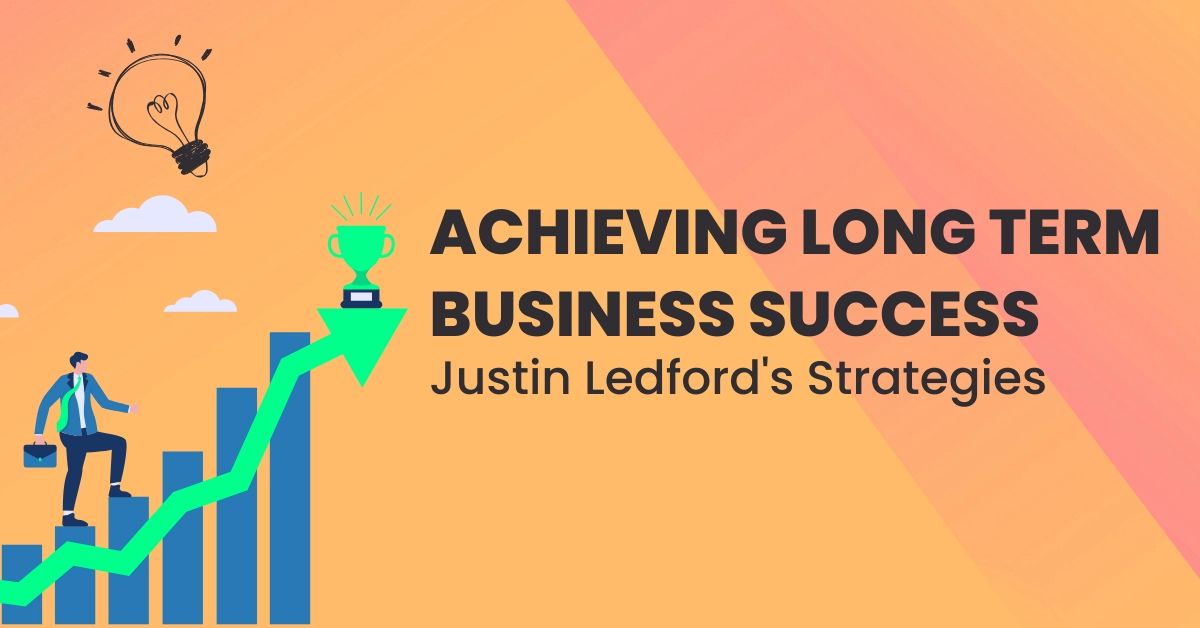In the fast-paced world of business, achieving long term success is a coveted goal. It requires more than just a brilliant idea; it demands a strategic mindset, adaptability, and unwavering commitment. Throughout my entrepreneurial journey, I have discovered key strategies that have played a pivotal role in sustaining and growing successful businesses. In this blog, I will share the keys to a successful business that can guide you on the path to long term business success.
Defining Long Term Business Success
Long term business success transcends the immediate gains and focuses on sustainable growth, profitability, and resilience. It involves building a brand and a business that can withstand market fluctuations, evolving consumer preferences, and competitive challenges.
Strategy 1: Visionary Planning
One of the fundamental pillars of long term business success is visionary planning. It starts with defining a clear and compelling vision for your business. A strong vision serves as a guiding star, helping you make decisions, set priorities, and align your team’s efforts. When everyone in your organization understands and believes in the long-term vision, they are more likely to work towards its realization.
Strategy 2: Customer-Centric Approach
Successful businesses prioritize their customers. Understanding customer needs, preferences, and pain points is essential. A customer-centric approach involves not only delivering quality products or services but also creating exceptional experiences. Happy and satisfied customers become loyal advocates and contribute significantly to long-term success.
Strategy 3: Adaptability and Innovation
The business landscape is ever-evolving. Long-term success requires adaptability and a willingness to embrace innovation. Be open to change, stay updated on industry trends, and continuously seek ways to improve your offerings. Businesses that innovate and adapt to new challenges are better equipped to thrive in the long run.
Strategy 4: Robust Financial Management
Financial stability is the backbone of long term success. Effective financial management includes budgeting, managing cash flow, and investing in areas that promote growth. It’s also essential to plan for contingencies and have a financial cushion to weather unforeseen challenges.
Strategy 5: Talent Development and Retention
Your team is a critical asset in achieving long-term success. Invest in talent development and create a workplace culture that fosters growth and engagement. Retaining skilled and motivated employees reduces turnover costs and ensures continuity.
Strategy 6: Ethical Practices and Reputation Management
Maintaining ethical business practices is not only the right thing to do but also essential for long-term success. Ethical businesses build trust with customers, partners, and employees. Reputation management is equally vital; a positive reputation can take years to build but can be damaged quickly.
Strategy 7: Strategic Partnerships and Alliances
Collaboration can open new doors and opportunities. Consider forming strategic partnerships and alliances with businesses that complement your offerings. Such partnerships can provide access to new markets, resources, and expertise.
Strategy 8: Continuous Learning and Improvement
The pursuit of long-term success is an ongoing journey. Stay committed to continuous learning and improvement. Seek feedback from customers and stakeholders, monitor industry developments, and adapt your strategies accordingly.
Strategy 9: Effective Marketing and Branding
In today’s competitive landscape, effective marketing and branding are essential components for long term business success. Developing a strong brand identity and a compelling marketing strategy helps you connect with your target audience and stand out in the market. Consistency in branding and messaging builds brand recognition and customer loyalty over time.
Strategy 10: Scalable Systems and Processes
As your business grows, scalability becomes a critical factor for long-term success. Establish efficient systems and processes that accommodate growth without compromising quality or customer satisfaction. Scalable systems ensure that your business can expand without experiencing a decline in performance or customer service.
Conclusion – The Endurance of Long-Term Success
Long term business success is not an endpoint but a continuous journey. By applying these strategies, you can build a business that withstands the test of time, adapts to change, and thrives in the face of challenges.
Remember, success is not solely measured by financial gains; it’s also about the impact you make on your customers, employees, and the communities you serve. Strive for a legacy of positive influence and meaningful contributions through your business.
Disclaimer: I am Justin Ledford, and I have shared my insights into achieving long term business success. I am not a financial expert or advisor, and this blog does not provide financial advice. Please consult with a qualified financial professional for personalized financial guidance.


